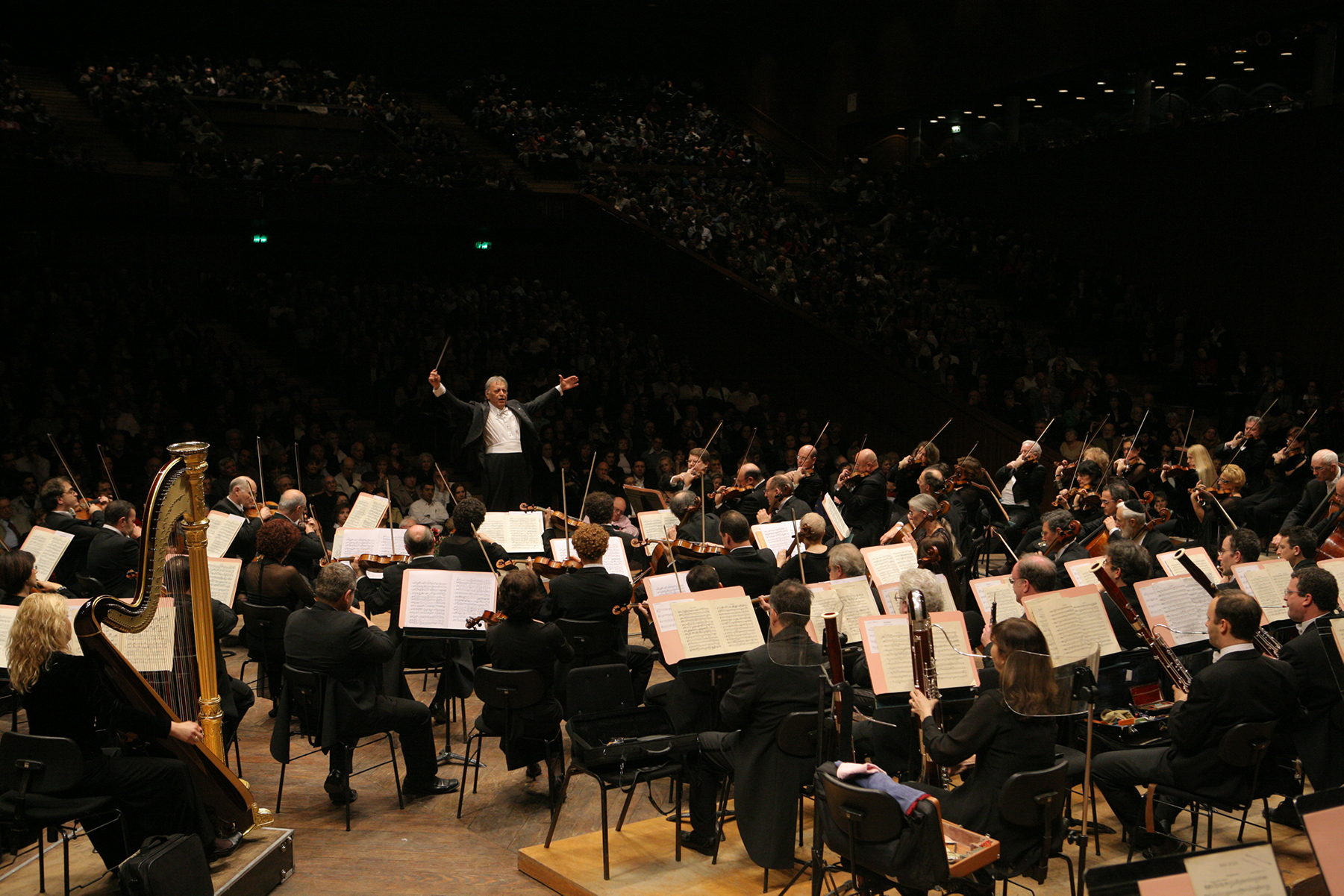Israel Philharmonic Orchestra
UCSB Arts & Lectures Presents the Israel Phil’s Santa Barbara Debut

When Bronisław Huberman formed what was originally known as the Palestine Orchestra in 1936, the nation of Israel as we know it today was just an idea, while the vulnerable position of Jews in most of Europe was already a grim reality. Through an unimaginably challenging campaign that took several years and included highs and lows that ranged from receiving the help and endorsement of Albert Einstein to having his precious Stradivarius violin stolen from the green room at Carnegie Hall, Huberman succeeded in not only founding what has become one of the world’s preeminent symphony orchestras but also saving the lives of dozens of great musicians who otherwise would have ended up perhaps playing — and then dying — in concentration camps.
Whereas the exciting story of the formation of the Israel Philharmonic Orchestra (IPO) can be heard and seen in the 2012 documentary Orchestra of Exiles, UCSB Arts & Lectures will give Santa Barbara music fans an opportunity to witness this musical legacy in person, as maestro Zubin Mehta leads the orchestra in concert at the Arlington on Wednesday, November 1. Mehta, who has been at the helm of the group since 1977, and was appointed its music director for life in 1981, announced earlier this year that 2019 would be his last active year with the IPO, so don’t miss this chance to witness one of the most important figures in the history of music while he’s still at the top of his form.
The program reflects both sides of the band and of the maestro. On the side of the IPO as national orchestra and of maestro Mehta as a champion of new music, there’s the opener, “Footnote,” a suite for orchestra by the Israeli composer Amit Poznansky. The piece originated as a soundtrack for the 2011 film of the same name, a drama about Talmudic scholars that imagines a scenario in which a devoted son makes a secret sacrifice in order to protect his difficult father. When Uzi Shalev, assistant principal bassoonist of the IPO, saw the film, he recognized the potential in Poznansky’s music to become a full-fledged orchestral suite.
From there, things will move toward the traditional repertoire on which both the Israel Philharmonic and Mehta have built their reputations. Mozart’s Symphony No. 36 in C Major, K. 425 (“Linz”) will invite the players to explore their penchant for rich, natural expressiveness in the classical mode, while Franz Schubert’s Symphony No. 9 in C Major, D. 944 (“The Great”) offers the promise of romantic-era fireworks.
The great paradox of symphonic music lies in the fact that it only reveals its full potential when musicians come together with more than just music in mind. The great orchestras play at their best in response to the urgency of the historical moment and the social context. There’s no such thing as a performance in the abstract; every concert belongs to that time and place. From this point of view, the Israel Philharmonic has been and remains one of the truly exemplary organizations in all of music. Their dedication and their connection to the thousands of people who come to hear them goes beyond symbolic representation to an enactment and an embodiment of the values that their collaborative music making expresses. To hear them play Beethoven or Mozart or Schubert is to step into a realm where memory transcends mechanical recall and becomes a spiritual process, the living recovery of a musical time without boundaries.
4·1·1
UCSB Arts & Lectures presents the Israel Philharmonic Orchestra Wednesday, November 1, 7 p.m., at The Arlington Theatre (1317 State St.). See artsandlectures.ucsb.edu or call (805) 893-3535.



